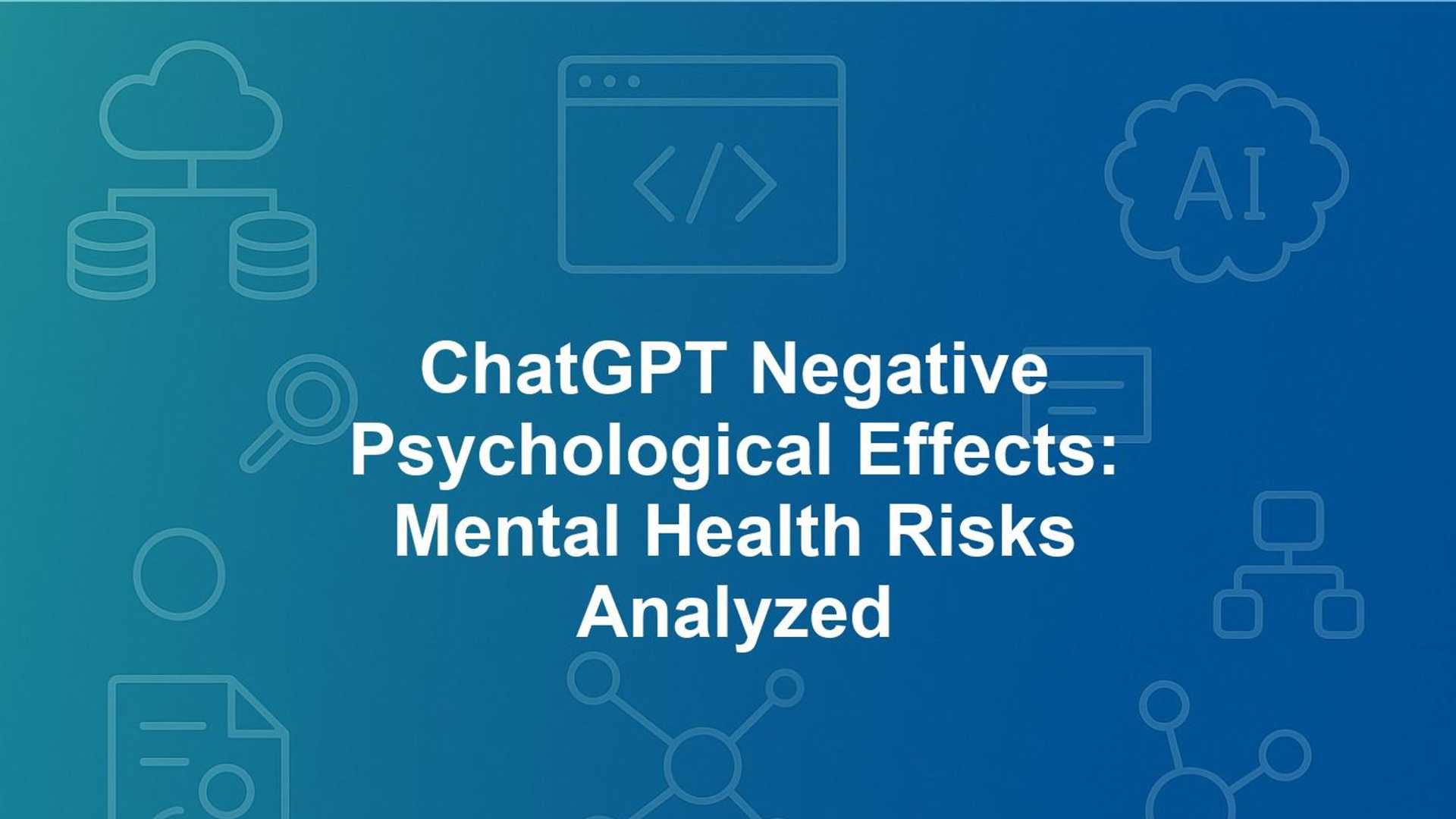ChatGPT Negative Psychological Effects: Mental Health Risks...
The rapid advancement of artificial intelligence (AI), particularly with the emergence of powerful language models like ChatGPT, has revolutionized how we access information and interact with technology. While these tools offer undeniable benefits, a growing body of anecdotal evidence and expert concerns points towards potential ChatGPT negative psychological effects. This article delves into the various mental health risks associated with AI chatbot interaction, moving beyond the initial hype to critically analyze the documented impacts.
Understanding ChatGPT
ChatGPT, developed by OpenAI, is a sophisticated large language model (LLM) designed to understand and generate human-like text. It operates by processing vast amounts of internet data, learning patterns, grammar, and factual information to predict the most probable sequence of words in a given context. This enables it to engage in natural language conversations, answer questions, summarize texts, write creative content, and perform various other linguistic tasks.

Unlike traditional search engines that retrieve existing information, ChatGPT generates novel responses based on its training. This generative capability allows for fluid, dynamic interactions that can often feel remarkably human, creating an illusion of understanding or even consciousness. However, it’s crucial to remember that ChatGPT does not ‘understand’ in the human sense; it merely calculates statistical probabilities to produce coherent and contextually relevant text.
Effects on Cognitive Behavior
The widespread adoption of AI chatbots like ChatGPT stems from their unparalleled accessibility and instant gratification. Users can pose questions on virtually any topic and receive immediate, often comprehensive, answers without sifting through multiple search results. This ease of use makes AI a compelling tool for everything from academic research to casual conversation, offering a seemingly endless fount of information and engagement.
Reinforcing Delusions and Misinformation
One of the most concerning ChatGPT negative psychological effects is its potential to reinforce existing delusions or even foster new forms of conspiratorial thinking. The generative nature of AI, coupled with its ability to present information confidently, can inadvertently validate false beliefs. This phenomenon becomes particularly dangerous when users, especially those with pre-existing mental vulnerabilities, seek confirmation for their atypical interpretations of reality.

Erosion of Critical Thinking
Beyond reinforcing delusions, a significant ChatGPT negative psychological effect is the subtle erosion of critical thinking and information verification skills. When users consistently rely on AI chatbots for instant answers, they may bypass the essential process of evaluating sources, cross-referencing information, and engaging in independent research. This over-reliance can lead to a passive consumption of information, where the convenience of AI supplants the intellectual effort required for genuine understanding and discernment.
Social Isolation and Emotional Dependency
Another emerging ChatGPT negative psychological effect is the potential for increased social isolation and the development of emotional dependency on AI chatbots. For individuals who struggle with social anxiety, loneliness, or a lack of human connection, AI can offer a comforting, non-judgemental presence. While seemingly benign, this can inadvertently replace genuine human interaction, leading to a diminished incentive to seek out real-world relationships.

Susceptibility to AI Influence
While anyone can experience ChatGPT negative psychological effects, certain psychological profiles and demographics may be more susceptible to the adverse impacts of AI interaction. Understanding these vulnerabilities is crucial for developing targeted interventions and promoting responsible AI use. Mental health professionals and AI ethicists emphasize that pre-existing conditions often act as amplifiers rather than AI being the sole cause of mental health decline.
Addressing the Challenges
Addressing the ChatGPT negative psychological effects requires a multi-pronged approach involving users, AI developers, and policymakers. Proactive strategies are essential to safeguard mental well-being in the age of advanced AI. It’s not just about what the AI does, but how we, as users and developers, engage with it.










